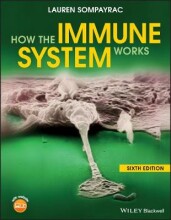T11: Kidney toxicity
8 important questions on T11: Kidney toxicity
What is the glomerulus and the nephron?
What is the proximal tubule?
Passsive transport/ osmosis will maintain the water and solute balance.
Which of these processes are more at risk?
- Higher grades + faster learning
- Never study anything twice
- 100% sure, 100% understanding
Toxic effects of chemicals on the kidney
What is the distal tubule?
What are renal failures?
Also if some of the tubulus are leaky, the uptake will be less effective. This can also affect the kidney because of back-leaking.
These acute failures can result in e.g. Necrosis. This may attrack immunecells and the whole kidney is affected.
This is all acute renal failure.
How can you detect where the renal failure is?
Why are heavy metals toxic for the kidneys?
The heavy metals can bind to SH groups of cellular macromolecules.
The elementary mercury is important for the kidneys, the charged for is more dangerous for the neurons.
Cadmium has a halflife of 10 years, that is why it is accumulating in the kidneys.
The question on the page originate from the summary of the following study material:
- A unique study and practice tool
- Never study anything twice again
- Get the grades you hope for
- 100% sure, 100% understanding






























